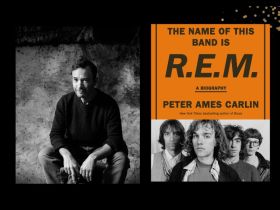Image: Freelance writer Sam West, supplied.
Navigating the world of publishers and editors can be difficult, especially when you are just starting out as an emerging writer. To offer some career advice and insight on getting started in the industry, ArtsHub spoke to freelance writer Sam West.
West has written for Vice, i-D, The Lifted Brow and Smith Journal, among others, and was formerly the editor of Melbourne local culture guide Three Thousand.
People always need copywriters
Let’s start with the big issue: earning enough money to live off your writing. To help pay the rent, many emerging writers find it useful to work as copywriters.
‘Learning how to copywrite well is a useful way to get paid alongside trying to get a start as a fiction or non-fiction writer. Writing regularly for websites and publications probably won’t pay your bills. Neither will writing a book. A lot of places with advertising and marketing budgets need compelling content from creative writers,’ said West.
‘Getting paid enough to be able to do it took me a long time. People really need copywriters, they really need writers to be able to communicate things.’
But this advice comes with a caveat. ‘You can kind of risk burning out if you tie up your creative practice with too many external stakeholders, that’s been my experience anyway. So it’s probably also a good idea to get a part time job that has nothing to do with writing,’ he added.
Keep pitching
‘It is a huge challenge for emerging writers to get noticed and a lot of times pitches end up deep in editors’ inboxes and don’t always get looked at. I’ve been one of those editors and you have a million things to do,’ said West.
His advice is not to take it personally. ‘Don’t be disheartened if people don’t get back to you about your pitches. It isn’t necessarily a reflection of you or your abilities,’ he added.
‘If you don’t keep pitching you can’t really get anywhere and you’re going to get stuck and disheartened.’
Find your writing community
Don’t underestimate the value of conversing and meeting other writers. It’s a close-knit community that can offer a lot of support. West found his early on when studying at the University of Melbourne, where he completed his undergraduate degree and a Master of Creative Writing, Publishing and Editing.
‘University is good. You meet people who are likeminded and might want to work with you and you get out of the house and join a writing community,’ he said.
‘[Graduate studies] was also really important in helping me clean my writing and make it more economical. Critical thinking has helped every part of my career from coming up with copywriting ideas to being able to look through my inbox and work out what is important quickly.’
Burn out
Joining a writers group can be a helpful way to find support when you are feeling burnt out, but West said it can also be important to find a ‘non-writers group’ or to take up an activity that is seperate from your work. ‘Find something else that isn’t writing where you have your own mental space.’
‘I completely burnt out at Three Thousands and couldn’t really deal with the stress of trying to do a lot of content and the rest of the business which is publishing and editing.’
‘What burnt me out was that I was spending all my time on content every week. There wasn’t enough room between my own experience and what I was cultivating into content for the world. That doesn’t leads to a good writing cycle. You need to find other people and other things that are not related to your writing practice.’
‘You need to find a writing community and a non-writing community, or do something else like going for regular walks. Whatever it is for you that doesn’t have anything to do with writing.’





